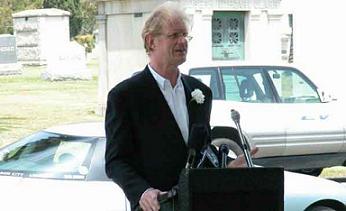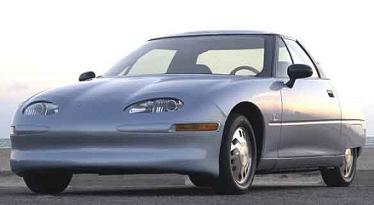Who Killed the Electric Car?


One of the hottest cars around right now is the Toyota Prius, a gas/electric hybrid with a huge waiting list. Which brings to mind a question - if gas/electric hybrids seem to be so popular know, why did the much-heralded GM EV1, a fully electric car from about a decade ago, fall into oblivion? The last anybody heard of them was when owners were trying to persuade GM into selling them the cars rather than scrapping them. Seemed like a reasonable request. However, with ongoing instability in the Middle East, gas prices rising to what feels like astronomic heights, and the threat of continued pollution and global warming, electric cars feel like a no-brainer.
Writer/director Chris Paine set out to discover who was responsible for the "death" of the electric car. Although he clearly has a political agenda, Paine sets out to present the case fairly. The first thing one realizes is that the entire issue is highly complex. There are multiple competing interests vying for attention and supremacy, and there is no easy explanation for what happened. Paine does the right thing by interviewing as many sides as he can, letting each person have his/her say, then letting the viewer make a decision based on the presented arguments. The players include the oil companies, auto manufacturers, consumers, the government, the California Air Resource Board, fuel cells, and batteries. Paine layers on a wealth of related information and keeps things moving quickly so that Who Killed the Electric Car? never becomes dull.
The electric car was reborn when Californian enacted a law requiring car manufacturers to have a percentage of zero emissions vehicles on the road by a specific date (the first electric cars appeared when cars were first manufactured). The manufacturers sued, yet at the same time began developing these cars. The allure was more than environmental. Electricity was cheaper than gasoline. The car could go just as fast, if not faster than normal internal combustion engine cars, and it's range on one charge could serve the needs of most people who commute. GM, the maker of the EV1 enlisted celebrities like Tom Hanks, Mel Gibson, and others to promote the use of their cars, and all seemed to love it. Paine interviews many of these celebrities, who continue to gush about how much they loved their cars.
But as the lawsuit made its way through the courts, a number of other factors happened. The Bush administration, considerably less green than the Clinton one, came to power. The industry began to increase its efforts in lobbying against the cars. Advertising seemed to be minimal, and focused more on winning awards than winning over consumers. In the end, the electric car disappeared, and Paine presents a convincing and compelling argument as to why they died and who killed them. It's all fascinating material, and extremely relevant in today's marketplace. One thing that Paine touches upon peripherally is that American manufacturers declared that nobody would want these types of cars. Toyota, afraid of pending legislation and eager to get ahead, developed the Prius, which certainly proves American manufacturers wrong and is making Toyota tons of money. Meanwhile, American manufacturers struggle under the weight of inefficient production costs, unwieldy union contracts, and a growing pension liabilities.